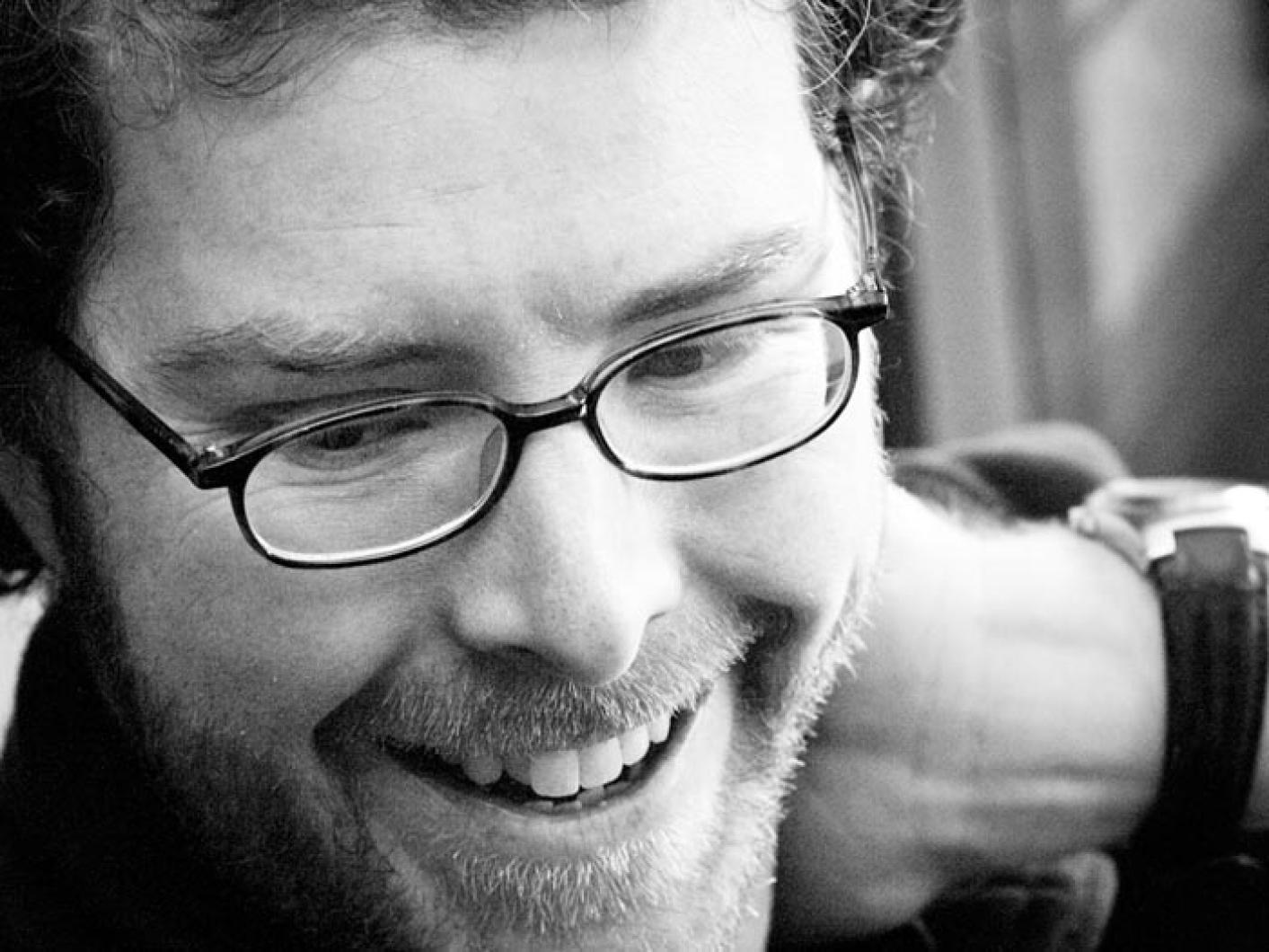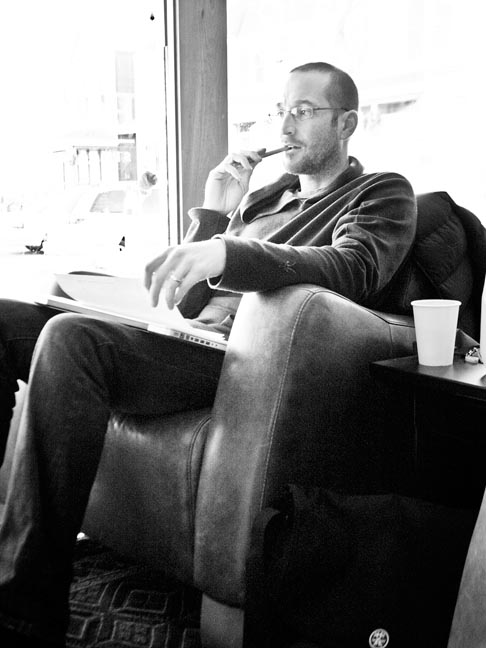For many months up-Island has been a place of quiet, windswept beauty, the destination mostly for winter walks or slow drives through the country. This will change next weekend, though, as the Chilmark Community Center becomes the place to be on the Island for three days and nights of nonstop movie watching.
The Martha’s Vineyard Film Festival is now celebrating its 11th year. The crew will once again transform the community center into a cozy hive of activity. There will be couches to lounge on and discuss the movies. Jan Buhrman and Robert Lionette will provide the food, much of it local, all of it delicious. And Rob Myers, the newly installed musical director, will spin the tunes.
But of course the real draw is the films, which this year include nine documentaries, three narrative features and one program of short films.
Seated in a chair or couch watching these films, all of them independent movies from around the world and fighting, if you will, to find their place among the more traditional Hollywood fare, it is easy to get lost in the present and merely turn on the judgement switch. That film was great, that one turned me off or, better yet, that one made me change the way I think about the world and the way I want to live.
All reactions are possible and, according to the festival creators, desirable.
But perhaps just as important is a momentary pause to stop and pay tribute to the sheer amount of work that goes into creating a festival such as this.
When Thomas Bena, the producer and creative director of the festival, started out 11 years ago, he was just a guy who wanted to watch a more eclectic mix of movies than were available to him living on the Island. He had help from friends but mostly it was his project.
“Before, when I felt something strongly, I just put it on the screen,” Mr. Bena admitted.
Now there is a screening committee of five people which this year includes Mr. Bena, Anne Evasick, Michelle Mayhew, Lilian Robinson and the festival’s managing director, Brian Ditchfield.
“This festival would not be nearly as well attended or as good if it was just me programming,” Mr. Bena noted. “We keep each other honest.”
The process of choosing films is a year round effort. The committee begins by searching online to see what other festivals are showing, and they attend festivals too. This year Mr. Ditchfield covered the Toronto and Sundance film festivals.
“A lot about going to festivals is feeling the buzz,” said Mr. Ditchfield. “Everybody is all about a certain film. And it’s also about having the film festival experience elsewhere, which really helps us reflect on our own film festival.”
They also have a lot of help from their vast network of contacts built up over the years.
“Past filmmakers and friends say to us, ‘Hey, have you seen this film?’” Mr. Bena said. “Which is kind of cool because people are networking with us throughout the year and giving us tips.”
“And the other big place is the distributors we now have contacts with, like the Weinstein Company, Focus Features and IFC,” Mr. Ditchfield added.
Okay, on first glance the process of finding the films doesn’t sound so difficult. Traveling the country and talking to people about movies? Sign me up.
The screening committee would be the first to agree that their jobs are, in some respects, difficult to categorize as work because they are all film fanatics, first and foremost.
But consider what happens when all these films from around the world begin arriving at the office.
This past year Mr. Bena and Mr. Ditchfield screened over 150 films.
“Two years ago I watched 60 films in January,” noted Ms. Robinson.
And most often these are not easy films to watch.
“To be honest, light comedies, if they are good, tend to get national distribution,” Mr. Ditchfied said. “It’s hard finding great narrative comedies that no one has seen.”
So what type of movies does the screening committee usually see?
“So many films about horrible atrocities and injustice. There is a lot of violence on this planet, much of it against women,” said Ms. Robinson.
Hundreds of films detailing the horrors people continue to inflict on each other around the world do not make for an easy experience. In Mr. Bena’s case, it has grown more difficult these past few years.
“Having a daughter, being a new dad, I can’t watch the stuff I used to be able to watch, especially the ones about women,” he said.
“I think it affects my dreams more than my waking life,” Mr. Ditchfield added. “It hasn’t affected my world view yet, but I haven’t been doing this for 11 years like Thomas.”
Ms. Robinson offered a different view. “I love the darkness. I seek it out in my spare time. I don’t like happy endings or too much joy.” It should be noted she was laughing at the time.
But all agree that, although these films need to be made and seen, the festival cannot be comprised of just these types of films.
“One of those films I’m fine with; it’s when you do too many that something happens in the room,” Mr. Bena said.
A momentary pause is taken as the committee remembers the 2004 festival, sometimes known as the death year. Films about euthanasia, home burial, the list went on.
Mr. Bena reflected on his own evolution as a film screener. “I don’t mind going to the darkness, because we all have to deal with some darkness, but now I’m looking for the films that go through the darkness, ones that ultimately find examples of bringing the light there. I think we have to be careful. There is enough darkness right now out in the world. I want to be part of the change.”
Turning to this year’s festival lineup it appears Mr. Bena and the screening committee have achieved their mission.
The 13 full-length films do include a mix of difficult subjects but each one also allows for shades of light to enter the stories. The First Grader tells the story of an 84-year-old Kenyan man, once the tragic victim of his country’s horrific past, who takes advantage of the present-day Kenyan government’s offer of free education. But he must start at the beginning, in first grade.
Crime After Crime explores a very different world but follows a similar emotional trajectory. It is a piece of investigative journalism involving two real estate lawyers who volunteer their time to free a wrongfully convicted woman.
“This is an incredibly moving story,” Mr. Ditchfield said of the movie. “And I got the privilege of meeting some of the people from the film at the festival [Sundance] and now the director is coming with the film.
This is another huge benefit of the film festival. A lot of effort goes into bringing the creative forces behind the films to the Island to answer questions and facilitate discussion. This year producers or directors from over half of the films will be in attendance.
The lineup includes some lighter fare too. Boy, a sensation in Australia and New Zealand, tells the tale of two young boys reunited with their father who, it turns out, may be more of a child than his children. The documentary I Am follows hugely successful Hollywood film director Tom Shadyac on his global search to discover what makes people happy.
There will also be films devoted to local subjects. Windfall explores the myriad controversies surrounding wind power, and We Still Live Here tells the story of Islander and recent MacArthur Foundation “genius grant” winner Jessie Little-Doe Baird as she rediscovers her ancestral language. And opening the festival will be Charlotte, directed by Jeffrey Kusama-Hinte, Island summer resident and recent Golden Globe winner and Oscar nominee for producing The Kids Are All Right.
Charlotte is a documentary about the Gannon and Benjamin Marine Railway, in particular Nat Benjamin’s quest to build a wooden boat for himself. According to Mr. Kusama-Hinte, almost no one has seen the film yet “besides people who are directly related to me or who are on my payroll.”
This is not the first film Mr. Kusama-Hinte has brought to the festival. In fact, it is his fifth. But this is his most personal; he shot it himself with the help of cinematographer Brian Dowley over the course of four years. It is also his first movie filmed on the Vineyard.
“In some sense the Martha’s Vineyard Film Festival is really the audience and the place for it,” he said. “I feel it is the best way for me to understand this film.”
Mr. Kusama-Hinte describes the film as a kind of meditation which explores “a sensibility that you can do things tangibly, creatively and productively with your life.”
Which brings us back to the festival as a whole.
Eleven years ago Thomas Bena decided he wanted to watch more movies. Over the years his vision has grown. To borrow from Mr. Kusama-Hinte, his story is also one of someone doing something tangibly, creatively and productively with his life.
Next weekend, the Island is once again the beneficiary of his journey.
The Martha’s Vineyard Film festival opens on Friday, March 18 at 7 p.m. and continues through Sunday, March 20. For a complete list of film descriptions, schedules, prices and directions visit tmvff.org. A pullout guide to the festival will appear in next week’s Gazette.





Comments
Comment policy »